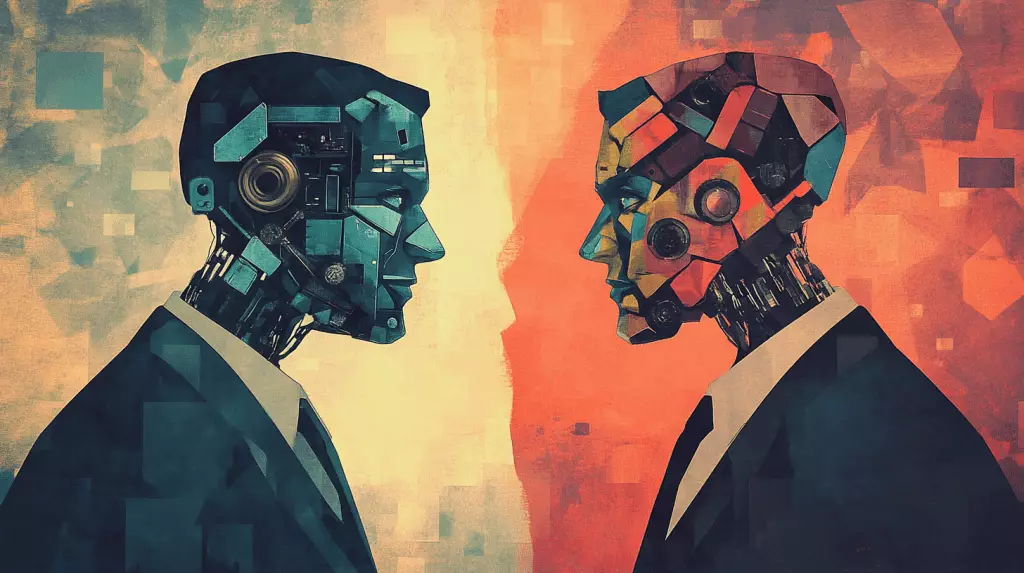In the rapidly evolving landscape of artificial intelligence, the term “open source” has transcended its niche beginnings and emerged as a buzzword wielded by tech giants vying for consumer trust and market share. Companies like Meta, Google, and OpenAI have integrated the notion of openness into their branding, yet the actual depth of transparency often falls short of what true open-source entails. As these tech titans unveil AI products to the public, the stakes have never been higher. A single miscalculation can shatter public confidence in the technology for years to come. Thus, it is paramount to understand not just the superficial allure of open-source initiatives, but the critical importance of genuineness in transparency and collaboration.
Let’s dissect the implications of what it means to be “open source” in a domain as intricate and potentially disruptive as AI. Real open-source collaboration isn’t merely about source code availability; it is about enabling visibility, scrutiny, and the opportunity for collective advancement. This goes beyond the immediate benefits, unlocking an innovation ecosystem that prioritizes ethical considerations and social welfare.
Innovative Ecosystems: Democratizing AI Development
Historically, open-source projects such as Linux and Apache have redefined entire industries, catalyzing innovation that has propelled technological progress to unprecedented heights. As we stand on the brink of a similar revolution in AI, the demand for genuinely open-source tools is surging. An IBM study revealed that nearly half of IT decision-makers show an uptick in enthusiasm for leveraging open-source AI solutions, correlating with increased returns on investment (ROI). This data suggests that organizations are recognizing the multifaceted benefits of open-source AI, which transcends mere profit margins to embrace diversity, customization, and ecological impact.
With proprietary AI models often designed for short-term gains favoring their creators, open-source frameworks offer a pathway to unlock diverse applications across disparate sectors—benefitting smaller enterprises and under-resourced industries that might otherwise remain excluded from advancements. The potential here is vast; democratizing access to AI tools can spur smaller innovators to create applications tailored for unique local challenges, rather than relying on one-size-fits-all solutions delivered by monopolistic giants.
The Crucial Role of Community Oversight
Integrity and accountability in AI are non-negotiable, particularly as various models become increasingly intertwined with sensitive societal matters. The troubling discovery of illicit content in the LAION 5B dataset illustrates the stakes involved. When the community engaged in reviewing this data set, they uncovered more than 1,000 URLs linked to child sexual abuse material, raising alarm bells with far-reaching implications. Had this dataset operated behind closed doors, the potential ramifications could have been disastrous.
The open nature of the dataset allowed for real-time community engagement, enabling industry stakeholders to correct the errors and address ethical breaches swiftly. This incident underlines the necessity of transparency: independent scrutiny can reveal issues that organizations may overlook or fail to disclose, hence fortifying public trust in AI technologies.
However, calling something “open source” necessitates a comprehensive effort. This includes sharing not just the model’s architecture but also the datasets, training algorithms, and any other components that determine an AI system’s capabilities. For instance, Meta’s limited rollout of Llama 3.1 405B, which revealed only a fraction of its underlying technologies while withholding the source code, represents an example of partial openness that can be deceptive. To avoid falling prey to this pitfall, the industry must be vigilant in setting standards that genuinely reflect openness.
Building Trust with Honest Collaboration
As industry leaders navigate the murky waters of AI development, embracing a complete open-source agenda may serve as the key to earning consumer confidence in these transformative technologies. It is no longer sufficient to throw around the term “open source” without commitment; the materials that make up the systems must be accessible for public discourse, validation, and iterative enhancement. This approach fosters a culture where innovation and ethical considerations coexist.
Simultaneously, emerging frameworks for assessing AI models demonstrate the need for viable methods of measuring ethical dimensions. Standard benchmarks are failing to account for evolving datasets and the context of their application, highlighting the necessity for ongoing refinements in evaluation practices. Establishing a robust mathematical foundation to articulate the capabilities and limitations of AI systems will be integral to ensuring responsible innovation.
The future of AI is one that involves a collective reckoning with how transparency can shape technology for the better. By genuinely opening up AI systems for collaboration, the industry can hedge against mistrust and catalyze a movement toward ethically developed technologies that serve the public good. As we forge ahead, the paradigm of open-source AI, rooted in authenticity and collective scrutiny, can indeed define a safer, more innovative technological landscape.

